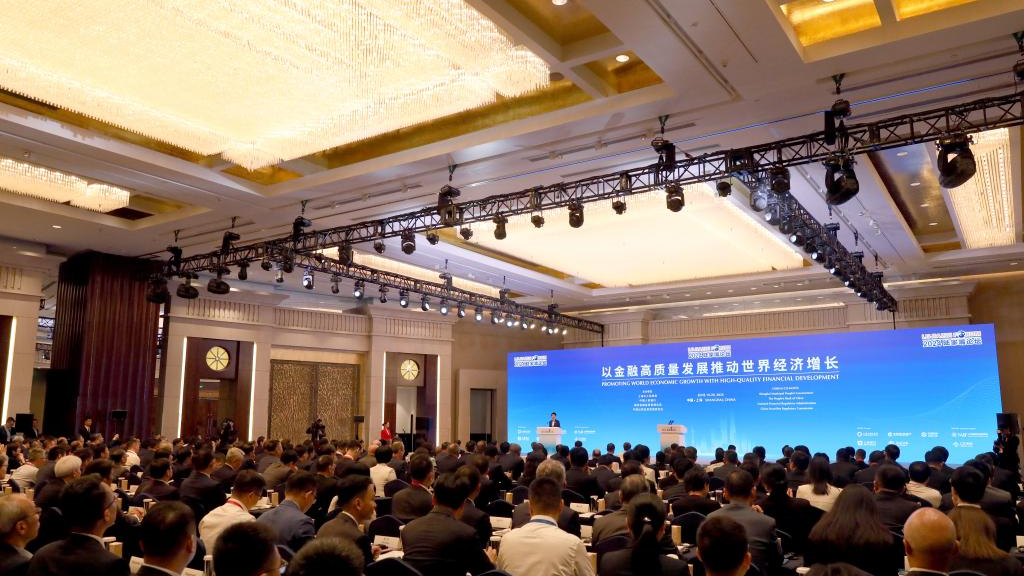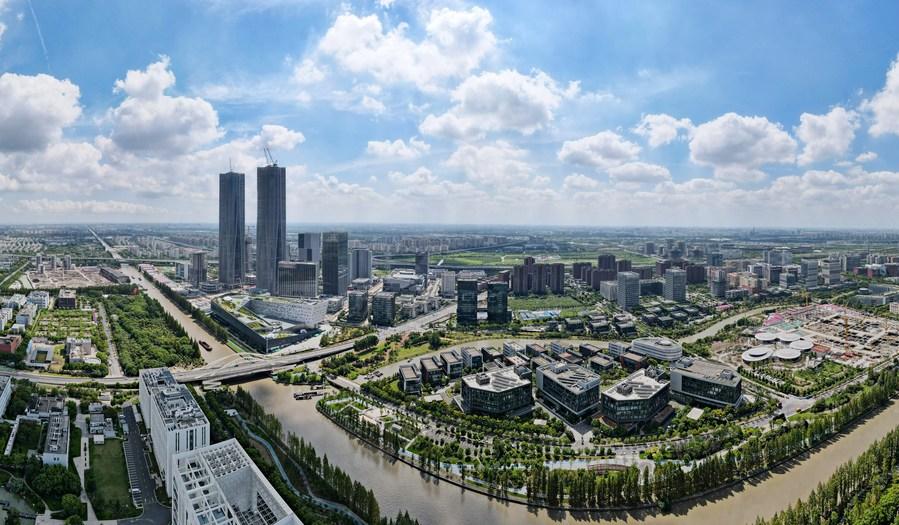
The 15th Lujiazui Forum opens in Shanghai, east China, June 19, 2024. [Photo/Xinhua]
By Matteo Giovannini
The 15th edition of the Lujiazui Forum, an annual event created with the goal of promoting dialogue among high-level government officials, world financial leaders and scholars on China's financial reforms and market opening-up, concluded in Shanghai on June 20, after discussions on promoting world economic growth with high-quality financial development.
On the opening day, the International Monetary Fund (IMF) announced the official inauguration of a Shanghai regional center, according to an IMF press release.
The decision by the Washington-based monetary body to open a regional center in China's financial hub is a step to deepen the IMF's dialogue and cooperation with member countries and stakeholders in the region. It is a significant move for several reasons.
The most obvious aspect is the rising economic influence of the Asia-Pacific region, particularly China, becoming a critical driver of global economic growth. Establishing a regional center in Shanghai aligns with the IMF's recognition of the region's growing economic importance and better engage with key economies and address regional economic issues more effectively.
The new IMF regional center is an initiative to stimulate greater collaboration with regional stakeholders. The proximity to major Asian economies will facilitate closer interaction and more efficient communication between the IMF and regional governments, financial institutions and economic policymakers, and improve the IMF's ability to provide timely support, policy advice and technical assistance.
In addition, the move underscores the need for regional stability. The Asia-Pacific region has diverse and dynamic economies, ranging from advanced ones like Japan and South Korea to emerging markets like India and Indonesia. Having a regional center in Shanghai will help the IMF monitor economic developments more closely, provide rapid responses to economic crises, and contribute to regional financial stability.
To be more specific, the IMF's goal is to provide technical assistance and training to member countries in this part of the world. A regional center in Shanghai will serve as a hub for capacity-building programs, helping to strengthen the economic and financial frameworks of countries in the region, and contribute to a more resilient and sustainable economic growth.
The decision has undeniably been influenced by China's crucial role in the global economy. As the world's second-largest economy, China's economic policies and performance have significant global implications. An IMF center in Shanghai will facilitate more direct and frequent interaction with the Chinese authorities, fostering better understanding and cooperation on issues such as exchange rates, trade and structural reforms.

The Zhangjiang area of the China (Shanghai) Pilot Free Trade Zone in Shanghai, east China, September 10, 2023. [Photo/Xinhua]
The decision to establish the regional center in the Chinese mainland's commercial capital also has strategic significance. Shanghai is not only a major financial hub but also a gateway to other significant economies in the region. Its key location offers logistical advantages for IMF staff and stakeholders, making it a convenient base for regional operations and initiatives.
In this sense, establishing a presence in Shanghai demonstrates the IMF's commitment to the Asia-Pacific region, signaling the organization's recognition of the region's economic achievements and its intention to support the region's continued development and integration into the global economy.
From China's perspective, the move is a recognition of the efforts by its securities regulator and the Shanghai Municipal People's Government to establish a collaborative working mechanism to enhance Shanghai's global competitiveness and influence.
Lastly, the Shanghai regional center can be seen as a stepping stone for China's increasing role within the IMF and by large, in global finance. Former IMF Managing Director Christine Lagarde had said in an interview in 2017 that the IMF could be headquartered in Beijing in a decade. Time will show if she was right in her prediction.
Matteo Giovannini, a special commentator on current affairs for CGTN, is a finance professional at the Industrial and Commercial Bank of China and a member of the Global Young Leaders Dialogue.

 中文
中文



